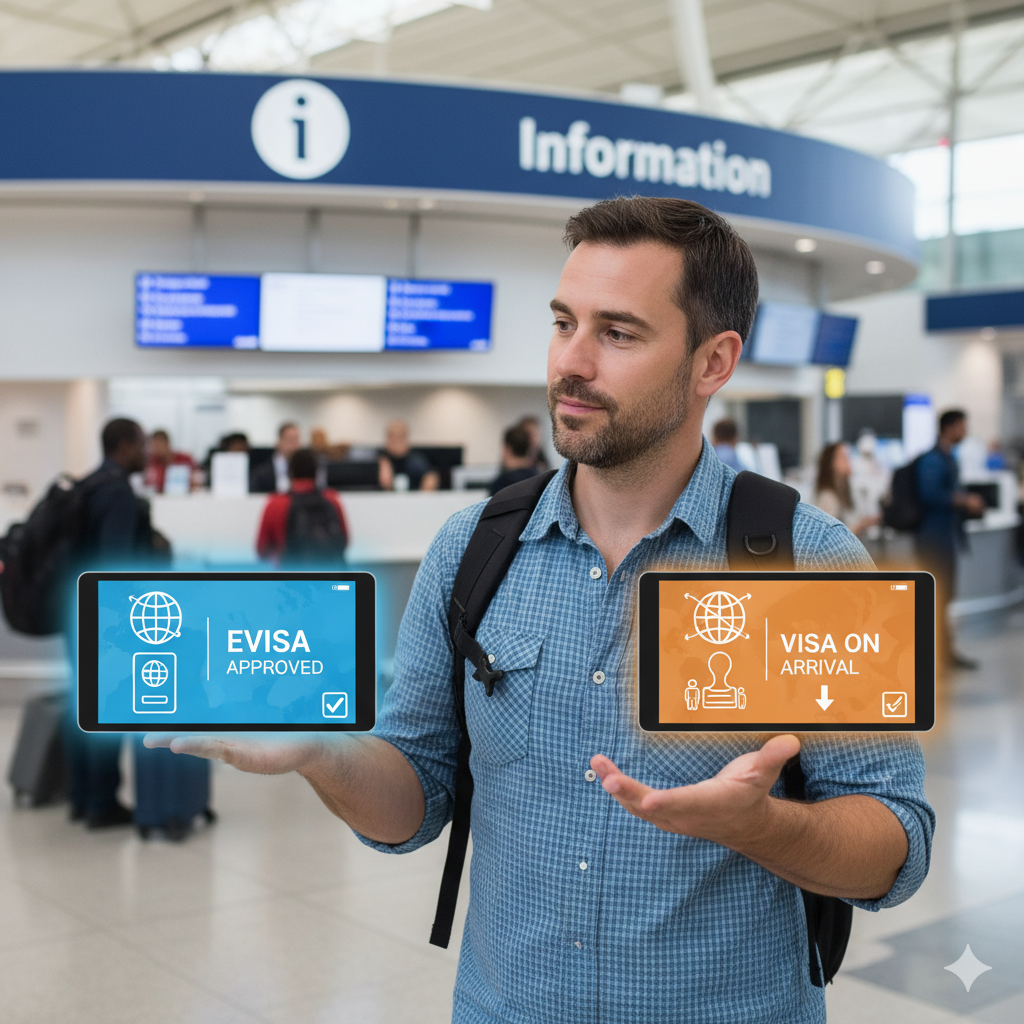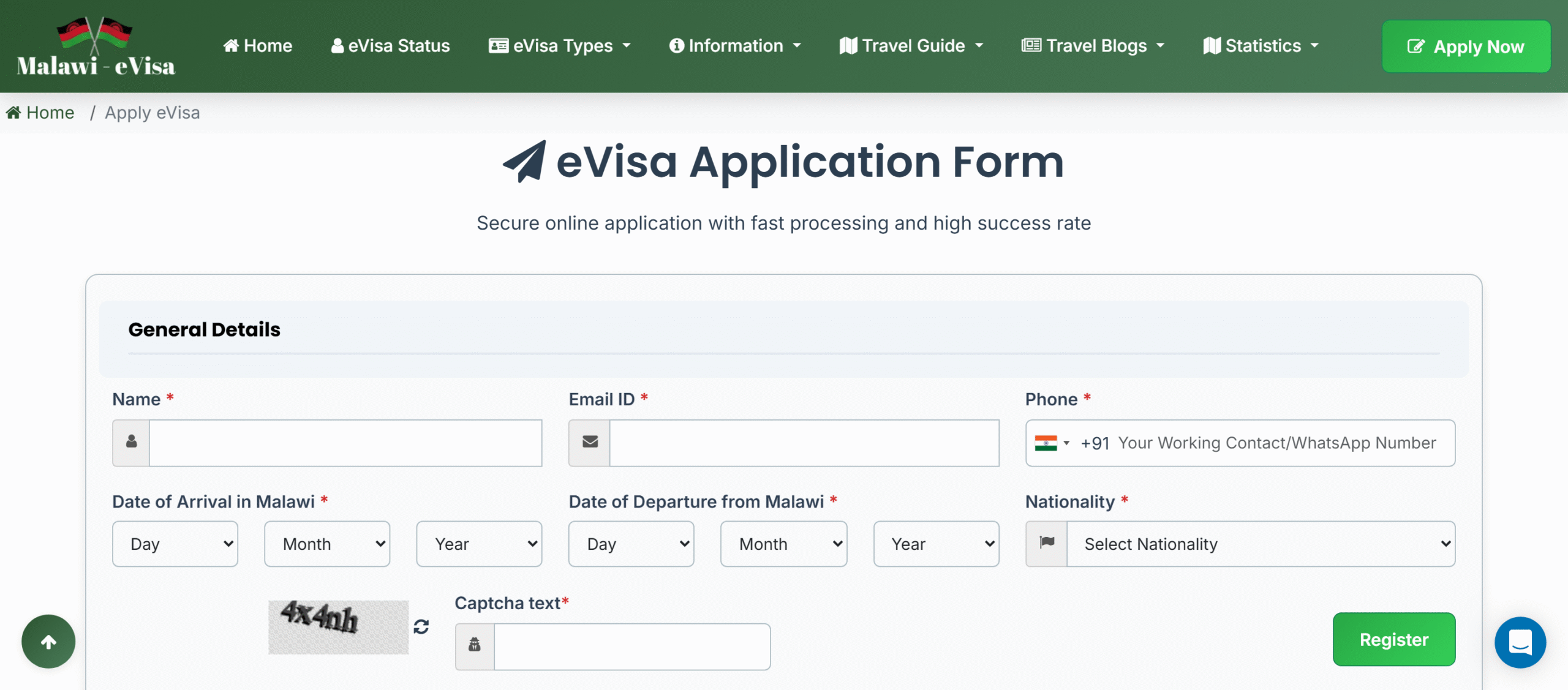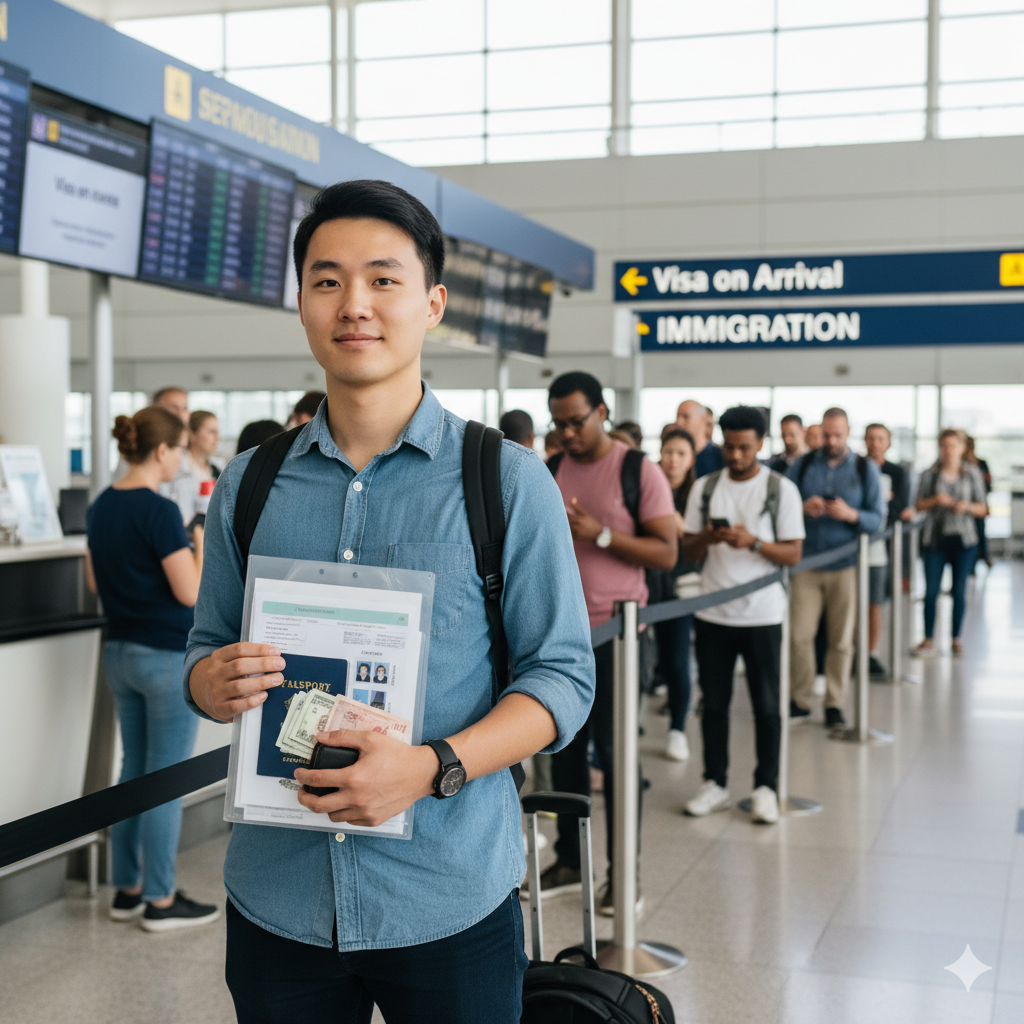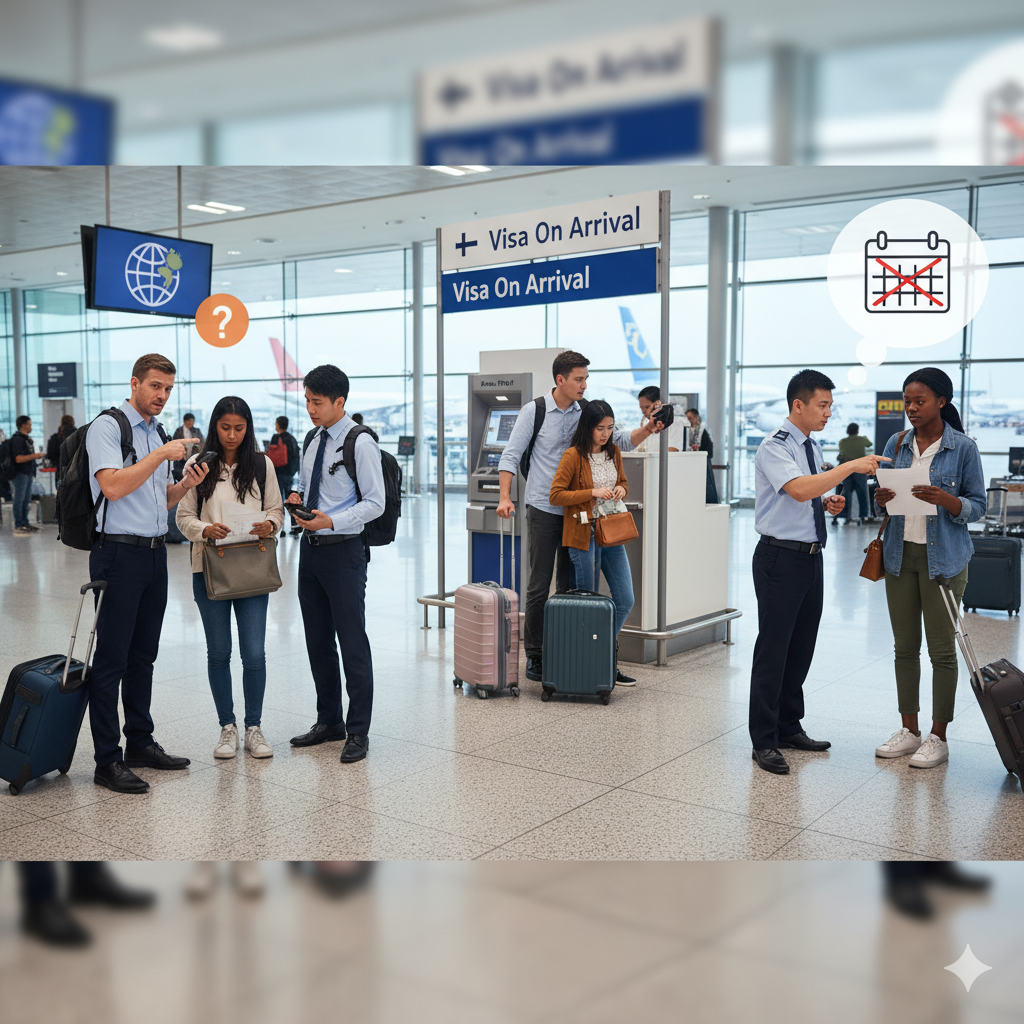When traveling to Malawi, the question of whether to apply to eVisa prior to travel or the Visa on arrival is one of the initial questions that arise. Most travelers can choose the two options, but the difference between them is very big in terms of experience, convenience and peace of mind.
This step-by-step guide will introduce you to the advantages and disadvantages of Malawi eVisa online and Visa on Arrival and provide you with straightforward information that would allow you to make a decision on which one of these two options better meets your travel requirements.
Understanding the Basics: eVisa and Visa on Arrival

Before diving into comparisons, let’s understand what each option means.
- Malawi eVisa: An online travel authorization that you apply for before boarding your flight. Once approved, you get an electronic document that allows you to enter Malawi smoothly.
- Visa on Arrival: This option allows travelers to apply for a visa after landing at a Malawian airport or border post. You fill out forms, provide documents, and pay fees at the entry point.
Both options grant you legal entry into Malawi, but the process and experience are different.
Benefits of Malawi eVisa
The eVisa system is designed to make travel planning easier. Let’s break down its advantages.
1. Less Stress Before Arrival
With an eVisa, you land in Malawi knowing your travel approval is already secured. There’s no need to stand in long queues, worry about missing documents, or face last-minute surprises.
2. Better Control Over Application

Applying for Malawi eVisa online means you can prepare everything carefully. You can scan and upload documents, review details, and ensure accuracy before submission. This reduces the chances of mistakes that could delay your entry.
3. Faster Entry at the Airport
Travelers with eVisas typically move through immigration faster. Instead of waiting in the Visa on Arrival line, you present your eVisa approval and passport, making the process much quicker.
4. Peace of Mind
Knowing your travel is pre-approved helps you relax. It eliminates the uncertainty of arriving and hoping everything goes smoothly at the border.
Drawbacks of Malawi eVisa
While eVisa offers many advantages, it’s worth knowing the potential downsides:
- Requires Internet Access: If you have limited access to the internet or technology, applying may feel inconvenient.
- Processing Time: You need to apply a few days in advance. This option may not suit last-minute travelers.
Benefits of Malawi Visa on Arrival
For travelers who like flexibility, Visa on Arrival can be appealing. Here are the advantages.
1. Simple for Last-Minute Travel
If you decide to travel suddenly or don’t have time to apply beforehand, Visa on Arrival lets you get permission right at the airport.
2. No Pre-Application Needed
Some travelers prefer not to deal with online applications. With Visa on Arrival, you simply show up with your documents and payment, then complete the process there.
3. Useful for Travelers with Changing Plans
If you’re traveling through multiple African countries and haven’t finalized your Malawi stop, this option allows flexibility without prior commitment.
Drawbacks of Visa on Arrival
Despite its convenience, this option can be stressful.
1. Long Queues at the Airport
Travelers often face long lines after a tiring flight. Waiting to fill forms, submit documents, and pay fees can take a lot of time.
2. Risk of Missing Documents
If you forget a required document, you may face delays or, in rare cases, entry denial. Unlike an eVisa, where issues are resolved in advance, mistakes at the airport can cause big problems.
3. Unpredictability
There’s always a chance that rules change, fees vary, or systems slow down. Depending solely on Visa on Arrival can create uncertainty.
Key Comparisons: Malawi eVisa vs Visa on Arrival
Let’s compare the two side by side for a clearer picture.
| Factor | eVisa | Visa on Arrival |
| Application Time | Done online in advance | Done at the airport or border |
| Convenience | High – everything prepared | Medium – requires waiting and paperwork |
| Entry Speed | Fast – pre-approved | Slow – queues and form filling |
| Peace of Mind | Strong – already approved | Weak – dependent on airport process |
| Flexibility | Low – must apply before travel | High – no prior application needed |
| Risk of Mistakes | Low – documents checked beforehand | Higher – last-minute errors possible |
Which Travelers Should Choose eVisa?

The eVisa is the best option for:
- Planners: Those who like to have everything ready before the trip.
- Families with Children: Parents often prefer smoother, faster entry.
- Business Travelers: When time is money, avoiding airport delays is crucial.
- First-Time Visitors: For newcomers, it removes the stress of navigating paperwork at arrival.
Which Travelers Should Choose Visa on Arrival?
The Visa on Arrival might work better for:
- Last-Minute Travelers: Those who book trips just a few days before departure.
- Backpackers: Flexible adventurers who move across countries without fixed plans.
- Frequent Travelers: People already familiar with border processes who don’t mind waiting.
Practical Tips for Malawi eVisa Applicants
- Apply Early: Give yourself at least a week before your travel date.
- Double-Check Details: Make sure names, passport numbers, and dates are correct.
- Keep a Copy: Carry a printed and digital copy of your eVisa approval.
- Track Validity: Check the entry period and allowed stay duration before booking flights.
Practical Tips for Visa on Arrival Travelers

- Carry Exact Documents: Passport, photos, proof of funds, and return tickets are usually required.
- Bring Local Currency or USD: Payment is often required in cash, so prepare in advance.
- Arrive Early: To avoid long queues, choose earlier flights if possible.
- Be Patient: The process can take time, so stay calm and plan your schedule accordingly.
Cost Factor: Is There a Big Difference?
Both eVisa and Visa on Arrival usually cost around the same, depending on the visa type and duration. The real difference lies in time, convenience, and peace of mind rather than money.
Common Mistakes Travelers Make

- Assuming they don’t need a visa: Always check in advance if your nationality requires one.
- Waiting until the last minute: If you plan to apply for an eVisa, don’t delay.
- Not carrying cash for Visa on Arrival: Payment issues at the airport can be stressful.
- Forgetting return tickets: Immigration officers may ask to see proof of onward travel.
So, What’s Best for Visitors?
This will be determined by your way of travelling.
- In case you appreciate peace of mind, quicker processing speed and reduced stress, you are better off using Malawi eVisa.
- The Visa on Arrival can be of use to you in case you are an impulsive traveler that believes in flexibility and is not particular about standing in a lengthy queue.
To the majority of the visitors, mainly the families, first-timers and business travelers, eVisa is the winner as it ensures easy entry and predictable travel.
Final Thoughts
Malawi has a wide open arms to visitors with both e Visa and Visa on Arrival, which are available depending on the requirements of the visitor. You may love to plan or make impulsive travel plans and in any case, knowing the advantages and disadvantages of both will guide you to take the right direction.






